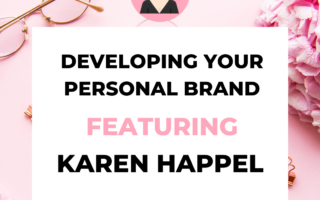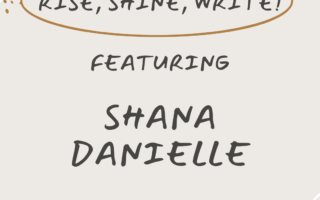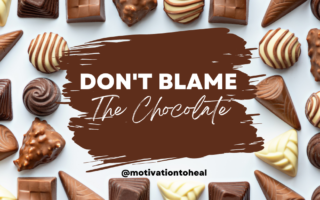Don’t be fooled by the word “essay” in the term “personal essay.” When writing one, you are still a storyteller writing a compelling narrative. And like most stories, your essay will chronicle your hero’s journey.
The hero’s journey is a story-telling formula codified and made famous by mythologist Joseph Campbell. Many stories from around the globe demonstrate this formula. Most importantly, it shows up time and again in the ups and downs of our own lives. Here is a breakdown of the phases:
- Call to adventure: An event or challenge occurs to which you must respond.
- Assistance: Someone steps in to help you navigate your challenge.
- Departure: You step out of your comfort zone to face the challenge.
- Trials: You face mini-challenges that lead to you ultimately facing the big challenge, or as Campbell would call it, the monster.
- Approach: Now, you face the giant monster.
- Crisis: You are in your darkest hour, possibly feeling hopeless and exhausted.
- Treasure: You gain your strength back; you are reborn, and you claim your prize.
- Result: Your monster concedes to your strength or chases you out of its dark lair.
- Return: You return to your ordinary world or your comfort zone.
- New life: You are changed, hopefully for the better.
- Resolution: You’re able to make some sense of, or some peace with what you went through.
- Status quo: Everything’s back to normal, but you’re different. Hopefully, wiser, healthier, happier.
Keep the hero’s journey in mind when you’re crafting your personal essay. You needn’t be particular about checking off every single phase. Just be sure you have the main gist: You’re faced with a challenge, you fight your monster, you come out the other end a changed person.
choosing where to start
Stories are all about how characters respond to and navigate changes. In his book, The Science of Storytelling, Will Storr says, “Many stories begin with unexpected change. And that’s how they continue too.” When writing a personal essay, choose a pivotal moment in your life, and try beginning your story at that moment of change or “call to action.” Play around with different moments within that more significant moment.
For example, if you’re writing the story of how taking one unexpected biology class changed your life’s trajectory, you might start your account at the point when you decided to take the course. Or you might begin with a conversation you had with a friend where you swore off taking science classes. Or you might start with an illustration of how your initial dream to become a chef wasn’t quite working out, but you weren’t quite sure what to do next. Either of these scenes signals change to the reader, holding their attention and prompting them to ask, “What’s happening?”
let’s look at some examples
In her essay, “On Self-Respect,” Joan Didion opens with this paragraph:
Once, in a dry season, I wrote in large letters across two pages of a notebook that innocence ends when one is stripped of the delusion that one likes oneself. Although now, some years later, I marvel that a mind on the outs with itself should have nonetheless made painstaking record of its every tremor, I recall with embarrassing clarity the flavor of those particular ashes. It was a matter of misplaced self-respect.
We know that a change has occurred as she says, “Although now, some years later.” In a former “dry season” of her life, she had a definition of self-respect she refers to as “embarrassing.” Now, she “marvels” at this old definition. Something must have happened, prompting her ideas to change. As readers, we want to what happened.
Cheryl Strayed grabs our attention in the opening of her essay, “The Boy With Blue Hair.”
Years after I’d last seen him, I called him up. Which meant first I had to call his mother, a woman I’d never met. In another lifetime I’d written her number in my address book beside her long, unfamiliar name.
As she opens with, “Years after I’d last seen him, I called him up,” we know there’s been a change. She doesn’t even have his phone number, so she has to call and get it from his mother, whom she’s “never met.” We are curious to know what in the world is going on here.
In our last example, “What a Black Woman Wishes Her Adoptive White Parents Knew,” Mariama Lockington draws us into her disjointed family.
Let’s begin with the picture. A small Polaroid taken of my family in the early ’90s at a flea market in Denver, Colorado. There were five of us then. My mother, father, baby brother Devan, little sister Eva, and me, Mariama, the oldest. We are standing in front of a booth that reads: “Adopt an Animal: Scales and Tales.” My father has a boa constrictor wrapped around his neck, and we all crowd in around him. Eva smiles like a diva under the crook of his right arm; my mother, in her faded pink sun hat, holds Devan in one arm and the tail of the snake in the other, and I am on the outside holding the very tip of the snake’s tail, looking petrified. The portrait is at first hilarious, capturing our family dynamics to a T. It is an all-American family portrait except for one detail: My parents and Eva share the same white skin, while Devan sports a head of curly hair and a peanut-buttery skin tone, and I, a bundle of locs on top my head, wear a complexion the color of wet bark. This is my adoptive family, my kin. A loud, passionate, stubborn mixture of people who don’t look anything alike.
The narrator is standing on the brink of change as she poses awkwardly with a “stubborn mixture of people who don’t look anything alike.” She is black; her parents are white, and she doesn’t fit in. We know there is trouble underway as she stands “on the outside,” holding a snake’s tail ominously.
your turn
Read and analyze the opening paragraphs of various personal essays and fiction. Notice how they signal change and hook you. Then write several openings to your story and see which works best.




Incredible post, beautiful design as well! I’m currently trying to summon the courage to write more myself so will give your points a go!
Isabella| https://achaosstory.com/
Thanks, Isabella!